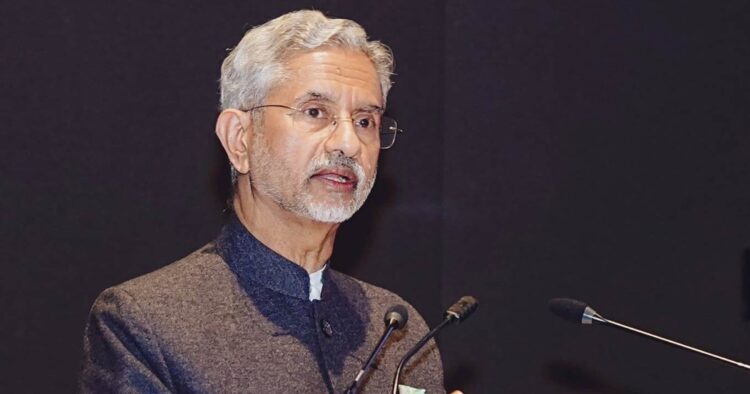In a recent development, Bharat’s External Affairs Minister, S Jaishankar, has emphasized the importance of Bharat consumers supporting locally manufactured products. He highlighted concerns about cheap and heavily subsidized imports, especially from countries like China, flooding the Bharat markets. To address this issue, Bharat has implemented policy measures, including quality control orders (QCOs), to curb the influx of low-quality imports.
Jaishankar urged both producers and consumers to take pride in “Make in India” initiatives, emphasizing the need to consciously choose products made within the country. The minister made these remarks at the ‘Aatmanirbhar Bharat Utsav celebration’ held at Bharat Mandapam.
Bharat, grappling with a 4% increase in imports from China, totaling a record $98.51 billion in FY23, is actively seeking ways to reduce dependency on foreign goods. The trade relationship with China has been imbalanced, with Bharat facing non-tariff barriers while attempting to export to China, resulting in a significant decline over the years.
Jaishankar stressed the significance of the One District-One Product (ODOP) initiative, aiming to select, brand, and promote at least one product from each district. He sees ODOP as a means to preserve the identity and personality of various societies and cultures amidst the challenges of globalization.
Commerce Minister Piyush Goyal clarified that Bharat is not against imports but is focused on making Bharat self-reliant. He emphasized the concept of Atmanirbhar Bharat, stating that while the nation welcomes imports when necessary, efforts will be made to leave an impression on the global stage in terms of cost, competition, and quality.
Despite Bharat’s goods imports surpassing exports in 2023, Goyal highlighted the importance of not completely closing doors to imports. He acknowledged the need to balance trade dynamics and mentioned Bharat’s efforts to increase exports, aiming for a favorable position in terms of cost, competition, and quality.
The article also noted positive results in Bharat’s electronic manufacturing sector, indicating success in reducing reliance on Chinese items. The Production-Linked Incentive (PLI) scheme played a crucial role, leading to a decline in imports of finished electronic products and instruments. This shift suggested early successes in boosting domestic manufacturing and decreasing dependence on imported electronics.

















Comments